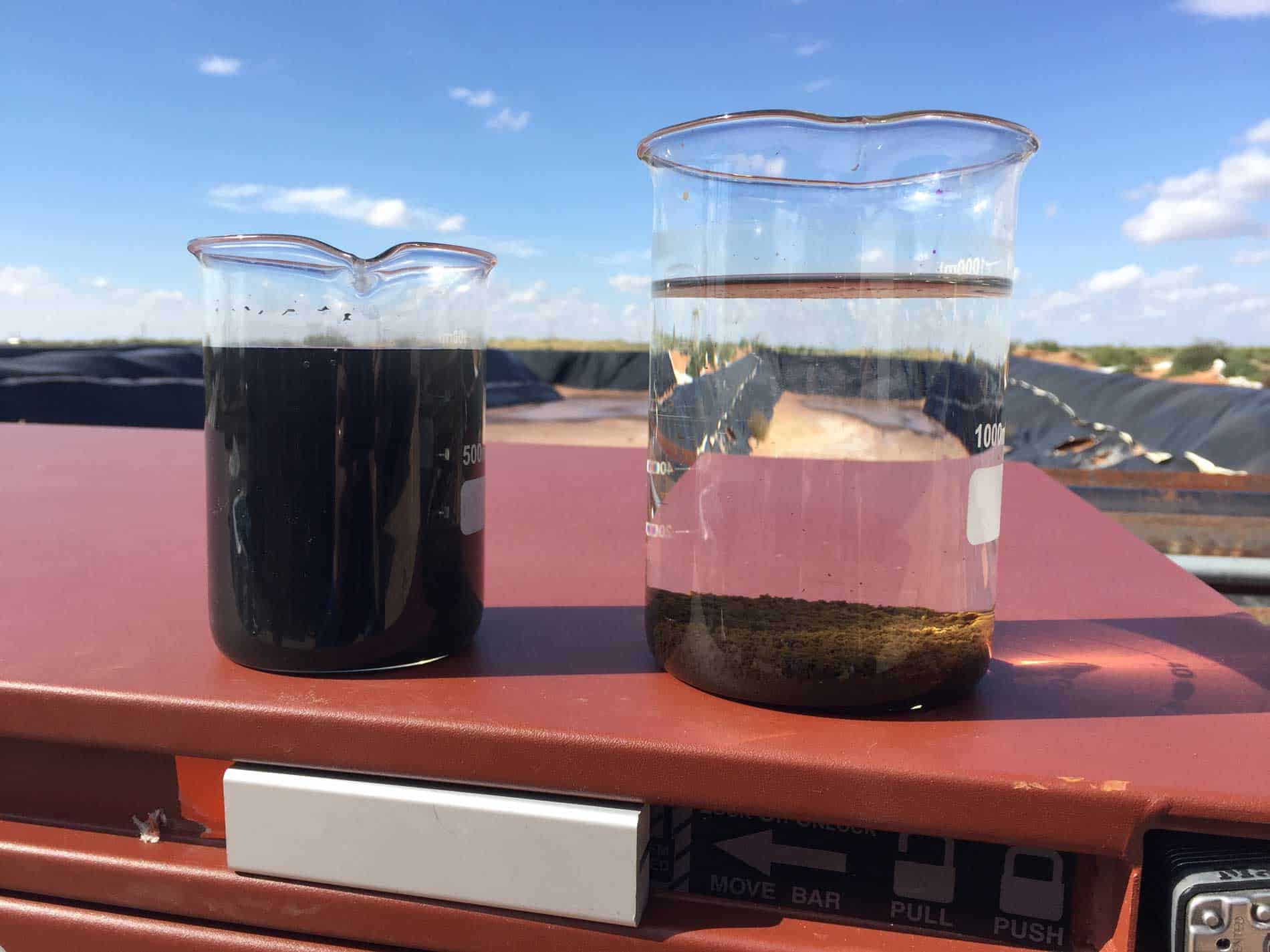EN 872 Total Suspended Solids in Produced Water Test
The EN 872 standard is a widely recognized protocol for determining the total suspended solids (TSS) concentration in produced water. This test method is crucial for ensuring that oil and gas operations comply with environmental regulations while optimizing production processes. In this service, we utilize advanced laboratory techniques to provide accurate measurements of TSS levels, which are essential for maintaining both ecological balance and operational efficiency.
Total Suspended Solids refer to the matter in water that can be retained on a filter when it is subjected to standard filtration under defined conditions. This measurement helps identify the amount of particulate matter present in produced water, including oil droplets, sand grains, biological materials, and other organic or inorganic compounds. Accurate TSS analysis is vital for understanding the quality of produced water, which can significantly influence well performance, pipeline integrity, and environmental impact.
The EN 872 standard specifies that samples must be filtered through a specified filter medium (typically a membrane with a nominal pore size) at a specific flow rate to ensure consistent results. The retained material is then dried to constant weight in an oven set at approximately 103°C, and the difference between the initial and final weights of the filter provides the TSS concentration.
In the context of oil & gas testing, particularly for produced water analysis, accurate measurement of TSS is critical. High concentrations of suspended solids can lead to scaling in pipelines, reduced well productivity, and increased operational costs. Conversely, low TSS levels might indicate inefficient separation processes or excessive dilution with fresh water.
Our service adheres strictly to the EN 872 protocol, ensuring that clients receive reliable and precise results. By leveraging cutting-edge laboratory equipment and experienced technicians, we can deliver comprehensive reports that meet both internal and external regulatory requirements. This level of precision is particularly important for companies operating in environmentally sensitive areas or those subject to stringent compliance standards.
Understanding the implications of TSS levels also extends beyond mere compliance; it plays a pivotal role in optimizing operational practices. For instance, monitoring TSS can help refine water treatment processes, enhance separator efficiency, and even inform decisions regarding the use of recycled produced water in new wells or injection operations.
Why It Matters
The importance of measuring Total Suspended Solids (TSS) cannot be overstated, especially within the oil & gas sector. Produced water is a byproduct of drilling and extraction processes, and its TSS content directly impacts both operational efficiency and environmental health.
- Operational Efficiency: High TSS levels can cause significant issues in production facilities. They may lead to accelerated wear on pumps and other equipment due to abrasive particles, reduced flow rates, and fouling of filters.
- Environmental Impact: Excessive TSS discharge into natural water bodies can harm aquatic ecosystems by altering pH levels, oxygen availability, and overall habitat quality.
- Regulatory Compliance: Many jurisdictions have stringent regulations regarding the permissible levels of TSS in discharged wastewater. Non-compliance can result in fines or operational shutdowns.
- Economic Considerations: Efficient management of TSS through proper water treatment and reuse practices can lead to substantial cost savings, particularly for large-scale operations.
By adhering to the EN 872 standard, we provide our clients with a reliable tool to assess and manage their produced water quality. This not only ensures compliance but also supports sustainable business practices that are increasingly valued by stakeholders.
Eurolab Advantages
At Eurolab, we pride ourselves on offering unparalleled expertise in oil & gas testing services. Our commitment to precision and accuracy is reflected in our EN 872 Total Suspended Solids in Produced Water Test service. Here are several key advantages that set us apart:
- Accurate and Reliable Results: Our state-of-the-art laboratory facilities, combined with rigorous quality control measures, ensure that every test conducted meets the highest standards of accuracy.
- Dedicated Expertise: Our team consists of highly qualified professionals who have extensive experience in oil & gas testing. They stay updated on the latest methodologies and international standards.
- Comprehensive Reporting: Beyond just numerical results, we provide detailed reports that include insights into potential operational impacts and compliance considerations.
- Rapid Turnaround Times: We understand the importance of timely results in operational planning. Our efficient processes allow for quick turnaround without compromising on quality.
- Sustainability Focus: Our testing services are designed not only to meet current regulatory requirements but also to support sustainable practices that benefit both business and environment.
We take pride in delivering exceptional service, ensuring that our clients can make informed decisions based on the most accurate data available. Whether you need regular monitoring or one-off assessments, Eurolab is your trusted partner for quality assurance in oil & gas testing.
International Acceptance and Recognition
The EN 872 standard has gained widespread acceptance across various countries due to its robust methodology and relevance to environmental protection. Here are some key jurisdictions where this test is recognized:
- Norway: Norway's stringent regulations on produced water quality make the EN 872 method a mandatory requirement for all oil & gas operations.
- The Netherlands: The Dutch authorities have incorporated EN 872 into their national standards, emphasizing its importance in safeguarding local ecosystems.
- Nigeria: In the Niger Delta region, where environmental concerns are paramount, the use of EN 872 is encouraged to ensure responsible resource management.
- Russia: Russian oil & gas companies often adopt this standard as part of their international best practices for produced water analysis.
The universal applicability and reliability of the EN 872 method underscore its significance in the global oil & gas industry. By aligning with these standards, Eurolab ensures that our services are relevant and valuable to clients operating across diverse geographical locations.





